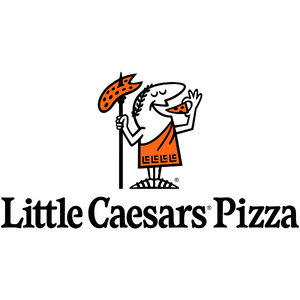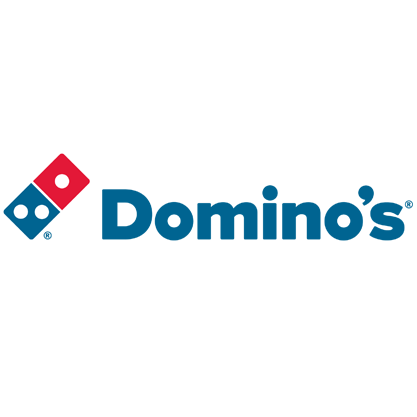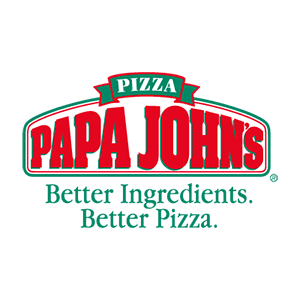Little Caesars Franchise in 2025: Costs, Fee & FDD
Explore the costs, fees, and insights into owning a Little Caesars franchise, one of the largest pizza chains globally. Discover key financials, support systems, and what it takes to join this iconic brand.
Table of Contents:
Little Caesars is a well-established name in the quick-service pizza industry, known for its catchy “Pizza! Pizza!” slogan and affordable offerings. Founded in 1959 by Mike Ilitch and his wife Marian in Garden City, Michigan, Little Caesars has grown from a single storefront to a global franchise powerhouse. The Ilitch family’s passion for quality and value laid the foundation for a brand that has become synonymous with convenience and great taste, making it one of the top pizza chains in the world.
The core of Little Caesars’ appeal lies in its simple yet effective menu. The brand is most famous for its Hot-N-Ready pizzas, which are ready for immediate pickup, catering to customers who prioritize speed and affordability. The menu also includes a variety of other offerings such as Crazy Bread, Caesar Wings, and various specialty pizzas. Its core customer base consists of busy families, budget-conscious individuals, and anyone looking for a quick and tasty meal without the wait. The chain has carved out a strong market presence by focusing on delivering value without compromising on quality.
Today, Little Caesars boasts over 5,500 locations across more than 27 countries and territories worldwide, making it one of the largest pizza chains globally. Little Caesars restaurants serve millions of customers daily, offering a consistent and familiar experience that has broad appeal. The brand’s growth is a testament to its effective business model, which combines a streamlined menu with efficient service and widespread availability. The sheer scale of its operations ensures that Little Caesars remains a significant player in the fast-food industry.
One of the standout features of the Little Caesars franchise is its comprehensive support system for franchisees. New franchise owners benefit from extensive training programs that cover everything from daily operations to marketing strategies. Additionally, Little Caesars provides ongoing support in areas such as supply chain management, site selection, and technology implementation. The brand’s commitment to its franchisees’ success is evident in its structured approach to training and support, making it an attractive option for prospective investors. Furthermore, Little Caesars offers an initial franchise fee discount for qualified candidates, enhancing the appeal for new franchisees. The company also supports the Disabled Veterans and Gold Star Family Program, showcasing its dedication to giving back to those who have served. These initiatives, along with the Caesars franchise owners’ benefit of a proven business model, make Little Caesars a compelling choice for entrepreneurs looking to invest in a well-established brand.

Little Caesars Franchise Insights
- Little Caesars is one of the largest pizza chains in the world, with over 5,500 locations spread across 27 countries, demonstrating its massive global reach and brand recognition.
- The company pioneered the Hot-N-Ready concept, which allows customers to pick up a pizza without waiting, a strategy that has helped them serve millions of customers efficiently every day.
- The brand is family-owned, with the Ilitch family maintaining control since its founding in 1959, ensuring consistent values and direction throughout its history.
- Little Caesars is known for its community involvement, including its “Love Kitchen,” a mobile pizza kitchen that has served over 3 million meals to those in need across the United States and Canada.
Little Caesars Franchise Key indicators
Growth YOY (%)
2%
vs industry 1%
Total U.S. Franchised Units
3,642
3-Year Failure Rate
6%
vs industry 11%
Sales-to-Investment ratio
0.9:1
How much does it cost to open a Little Caesars franchise?
Understanding the potential investment size and capital requirements is crucial when considering opening a Little Caesars franchise. These financial commitments, including initial franchise fees, equipment costs, and ongoing operational expenses, impact the feasibility and profitability of the venture. Thoroughly evaluating these factors ensures that potential franchisees are prepared for the financial responsibilities and can make informed decisions about their ability to sustain and grow the business, ultimately contributing to long-term success.
Min & Max Investment
Opening a Little Caesars franchise involves several key costs, which are outlined in Item 7 of the Franchise Disclosure Document (FDD). You can see a breakdown of the costs to open a Little Caesars below from the most recent Item 7 below:
| Type of Expenditure | Minimum Investment | Maximum Investment |
|---|---|---|
| Initial Franchise Fee | $20,000 | $20,000 |
| Rent | $1,500 | $7,000 |
| Leasehold Improvements | $50,000 | $1,000,000 |
| Fixtures, Equipment, and Signage | $222,000 | $434,000 |
| Grand Opening Advertising | $15,000 | $20,000 |
| Training Expenses | $12,000 | $16,500 |
| Start-up Inventory and Supplies | $63,000 | $154,000 |
| Insurance | $500 | $1,200 |
| Utility Expenses | $1,000 | $9,000 |
| Licenses and Permits | $1,000 | $20,000 |
| Additional Funds – 3 months | $17,000 | $47,000 |
| TOTAL | $403,000 | $1,728,700 |
Item 7 in the Franchise Disclosure Document (FDD) is the “Estimated Initial Investment” section. It outlines the total costs a franchisee can expect to incur when starting a franchise, including the initial franchise fee, equipment, inventory, real estate, and other startup expenses. This section is crucial because it provides potential franchisees with a detailed understanding of the financial commitment required, helping them assess affordability and plan their investment strategy effectively.
Required Capital
To open a Little Caesars franchise, the required capital involves both the initial investment costs and a net worth requirement set by the company. Let’s take a closer look below:
- Initial Investment The total estimated initial investment for a Little Caesars franchise typically ranges from $403,000 to $1.73 million. This includes all startup costs such as the franchise fee, construction, equipment, initial inventory, and additional funds for initial operating expenses. Assuming that you will finance your franchise investment, you should plan to have 20% of the total investment amount in the form of equity (cash) for the investment.
- Liquid Assets Requirement Little Caesars generally requires franchisees to have a minimum of $150,000 in liquid assets. This ensures that the franchisee has enough liquidity to handle unforeseen expenses and maintain financial stability during the initial phase.
- Net Worth Requirement The overall net worth requirement for a Little Caesars franchise can vary, but it is generally recommended that franchisees have a net worth of at least $350,000. This includes the value of assets like real estate, investments, and personal property, minus any liabilities.
How much does a Little Caesars franchise owner make?
Calculating the salary of a Little Caesars franchise owner involves analyzing gross sales to determine total revenue, assessing operational efficiency to understand profit margins, and accounting for franchisor fees and additional expenses such as rent, utilities, and payroll. Effective management of these factors can significantly impact the profitability and financial success of a Little Caesars franchise owner. This comprehensive financial analysis helps estimate net profits, from which the owner’s salary can be derived. A clear understanding of these factors ensures accurate salary projections and financial planning for sustainable business operations.
Little Caesars Revenue & Gross Sales
In 2021, Little Caesars franchises reported a median gross sales figure of $980,402. Earnings for owner-operators were approximately $147,060, marking a 14% decrease from the previous year, while semi-absentee owners earned around $117,648, reflecting a 7% decline. These figures highlight the brand’s ability to generate substantial revenue, though they also indicate some variability in earnings based on the level of owner involvement.
Which key factors impact the average revenue performance of Little Caesars franchisees?
Several factors likely contributed to the U.S. franchisee median gross sales revenue performance for Little Caesars. One key factor is the brand’s consistent focus on value-driven offerings, such as the Hot-N-Ready pizzas, which cater to cost-conscious consumers looking for quick and affordable meals. Additionally, Little Caesars’ strong marketing campaigns and recognizable branding have helped maintain consumer interest and loyalty. However, economic conditions and shifts in consumer behavior, such as increased preference for delivery services over in-store pickups, may have also impacted sales. The COVID-19 pandemic likely played a role in the sales performance, with fluctuations in consumer dining habits and local regulations affecting store operations.
Little Caesars Franchise Operational Costs
When running a Little Caesars franchise, it’s essential to keep track of several ongoing operational costs to maintain profitability and smooth operations. Here are the key expenses you should consider:
- Food and Beverage Regular replenishment of pizza ingredients, beverages, and other menu items.
- Labor Wages, benefits, and other employee-related expenses for your staff.
- Rent Lease or mortgage payments for the location of your franchise.
- Utilities Costs for electricity, water, gas, and other essential services.
- Maintenance Regular upkeep and repair costs for kitchen equipment and the facility.
- Supplies Purchase of packaging, cleaning supplies, and other necessary materials.
- Marketing Contributions to national and local advertising campaigns.
- Insurance Coverage for liability, property, and workers’ compensation.
- Technology Costs associated with maintaining point-of-sale systems, online ordering platforms, and other necessary technology.
These are some of the primary costs you’ll need to manage to ensure the smooth operation and profitability of your Little Caesars franchise.
Little Caesars Franchise Fees
When considering the ongoing fees associated with operating a Little Caesars franchise, it’s essential to understand the variety of costs involved. Here are some of the key ongoing fees you should be aware of:
- Royalty Fee The greater of 6% of Gross Sales for each one-week period or $300 for each one-week period. This fee is paid at the end of each one-week period via electronic funds transfer (EFT) or pre-authorized autodraft arrangement.
- Advertising Fee Up to 7% of Gross Sales, determined by the franchise. This fee is allocated among system-wide, cooperative, and local advertising expenditures.
- Blue Line Purchases Costs vary depending on standard terms set by Blue Line, the exclusive supplier for Little Caesars.
- Caesar Vision System Annual Support Fee Up to $3,500 per year per restaurant, currently set at $2,990 annually. This fee is assessed annually in January but collected in installments throughout the year.
- Digital Transactions Fee Up to $0.40 per transaction, currently set at $0.35, with an additional third-party aggregator fee of up to $0.10 per transaction for marketplace orders.
- Additional Fees There might be other additional fees that could apply depending on specific circumstances or additional services required.
It’s crucial to factor in these fees when planning your budget to ensure the financial success of your franchise.
Little Caesars Franchise Earnings
In 2021, Little Caesars franchisees experienced a median gross sales figure of $980,402. For owner-operators, this translated into estimated earnings of $147,060, reflecting a 14% decrease from the previous year. These figures provide a snapshot of potential profitability, highlighting that while gross sales remained stable, owner-operator earnings saw a decline, possibly due to increased operational costs or other market factors.
For those operating the franchise under a semi-absentee model, the estimated earnings were $117,648, a 7% decrease from the prior year. This suggests that while the franchise can still be profitable, the level of owner involvement plays a crucial role in maximizing earnings. It’s important to note that these figures are from 2021, and prospective franchisees should consider that the current financial environment may differ, requiring a more up-to-date analysis to gauge potential earnings accurately.
How to Open a Little Caesars Franchise
Becoming a Little Caesars franchisee involves a series of structured steps designed to ensure you are well-prepared to operate your franchise successfully. Here’s a breakdown of the process:
- Initial Inquiry You or your franchise specialist submits an initial inquiry basic information about your interest and background. You should also conduct thorough research on the franchise, including seeing all of the information available on the Vetted Biz franchise intelligence platform, including access to the most recent Franchise Disclosure Document (FDD).
- Franchise Application After your initial inquiry, you’ll be asked to complete a formal franchise application. This application will assess your financial qualifications, including your net worth and liquid assets, to ensure you meet the franchise requirements.
- Franchise Disclosure Document (FDD) Review Once your application is approved, you’ll receive the Franchise Disclosure Document (FDD). This document provides an in-depth look at the franchise, including financial performance, fees, obligations, and other critical details. It’s essential to review this document carefully, often with the help of a legal advisor.
- Discovery Day You’ll be invited to a Discovery Day at the Little Caesars headquarters. This event is an opportunity to meet the corporate team, ask questions, and learn more about the brand’s operations and support systems.
- Franchise Agreement Signing If you decide to move forward, you’ll sign the franchise agreement, officially making you a Little Caesars franchisee. At this point, you’ll also pay the initial franchise fee.
- Site Selection and Lease Negotiation With the company’s assistance, you’ll select a suitable location for your franchise. Little Caesars provides guidance on choosing a site that meets their criteria for visibility, accessibility, and customer traffic. You’ll also negotiate and finalize the lease for your chosen location.
- Training Program Before opening your store, you’ll undergo an extensive training program. This training covers everything from daily operations and customer service to marketing strategies and technology systems.
- Store Build-Out and Setup Once the site is secured, the build-out phase begins. This involves constructing and equipping your restaurant according to Little Caesars’ specifications. The company provides support during this phase to ensure everything meets their brand standards.
- Grand Opening After construction and setup are complete, you’ll open your Little Caesars franchise to the public. The corporate team will assist you with the grand opening and initial marketing efforts to attract customers and build your business.
- Ongoing Support Once your franchise is operational, Little Caesars continues to provide ongoing support in areas like marketing, operations, and technology, ensuring your continued success as a franchisee.
Pros & Cons
Pros
Established Brand: Little Caesars is a well-known brand with a strong reputation, giving you the advantage of brand recognition from day one.
Affordable Investment: Compared to other fast-food franchises, Little Caesars offers a relatively low initial investment, making it accessible for many potential franchisees.
Proven Business Model: The franchise has a streamlined and efficient business model, particularly with its Hot-N-Ready concept, which drives customer traffic and provides a consistent revenue stream.
Comprehensive Support: Little Caesars offers extensive training and ongoing support, from site selection and store setup to marketing and operations, helping franchisees succeed.
Strong Market Position: As one of the top pizza chains globally, Little Caesars benefits from a broad customer base and a proven track record of success.
Cons
Limited Menu: The menu at Little Caesars is focused primarily on pizza, which limits diversification compared to other franchises that offer a broader range of products.
High Competition: The pizza and fast-food industry is highly competitive, with numerous well-established brands vying for market share, which can impact sales.
Royalties and Fees: Ongoing fees, including a 6% royalty fee and up to 7% for advertising, can impact your profit margins, especially in the initial years of operation.
Market Saturation: In some areas, market saturation can be a challenge, making it harder to stand out and attract new customers.
Operational Demands: Running a Little Caesars franchise requires hands-on involvement, especially in the early stages, which may not suit everyone’s lifestyle or investment goals.




